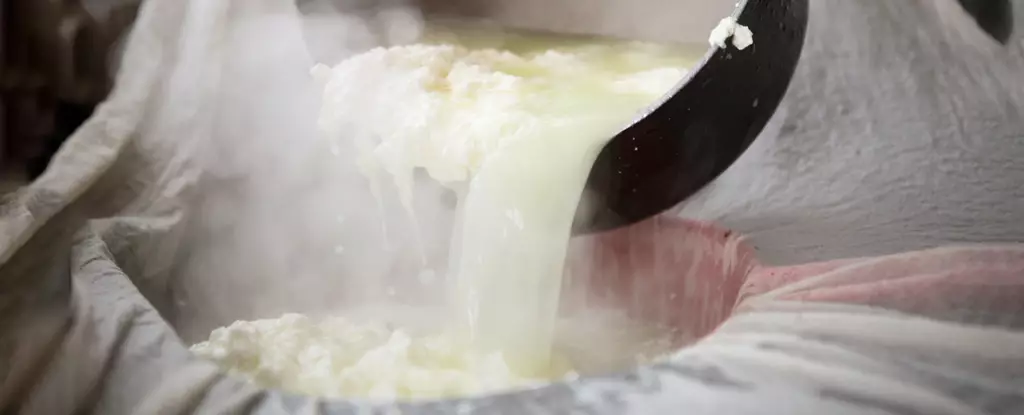In a groundbreaking development, a gel concocted from milk proteins and gold nanoparticles could revolutionize the world of hangover prevention. The gel, which is still in the early stages of development, has shown remarkable results in initial tests conducted on mice. The team of researchers, led by ETH Zurich materials scientist Raffaele Mezzenga and food scientist Jiaqi Su, managed to reduce blood alcohol levels in intoxicated mice by an impressive 40 percent within just 30 minutes of consuming alcohol. This innovative gel may offer a promising strategy for effective alcohol detoxification, marking a significant breakthrough in the field.
One of the key aspects of this gel is its ability to shift the breakdown of alcohol from the liver to the digestive tract. Unlike when alcohol is metabolized in the liver, the gel ensures that no harmful acetaldehyde is produced as an intermediate product. Acetaldehyde is notorious for causing a slew of hangover symptoms, such as nausea, headaches, dry mouth, lower blood pressure, increased heart rate, higher skin temperature, and facial flushing. By catalyzing the breakdown of alcohol in the gut into less-toxic acetic acid instead of acetaldehyde, the gel demonstrates its potential in mitigating the adverse effects of alcohol consumption.
Health Benefits and Organ Protection
Apart from its detoxification properties, the gel has exhibited additional health benefits in animal studies. Mice that received the gel daily along with alcohol experienced less weight loss and improved fat metabolism in their livers compared to those given alcohol alone over a period of 10 days. This suggests that the gel may help protect various organs from the damaging effects of alcohol consumption, making it a compelling option for individuals looking to minimize the negative impact of alcohol on their bodies.
To create this innovative gel, the researchers harnessed the power of milk’s whey, the liquid component that separates from the solid curds during cheese production. By boiling the whey for an extended period, the researchers were able to form long strands that could be coaxed into gelling with an iron-containing compound. Gold nanoparticles and sugar were added to the mix to facilitate a series of enzymatic reactions that effectively neutralize alcohol’s harmful effects. The gel’s unique composition and digestion properties ensure that alcohol is converted into less-toxic acetic acid before being further broken down by the body.
While the results so far are promising, there is still a long road ahead before the gel can be deemed safe for human trials. The researchers envision a future where individuals can take the gel before or during alcohol consumption to prevent the damaging impacts of alcohol on their bodies. Despite the potential benefits of this innovative gel, it is important to remember that the healthiest choice is to abstain from alcohol altogether. However, for individuals who choose to consume alcohol in moderation, this gel could offer a valuable tool for minimizing its negative consequences and safeguarding their well-being.



Leave a Reply